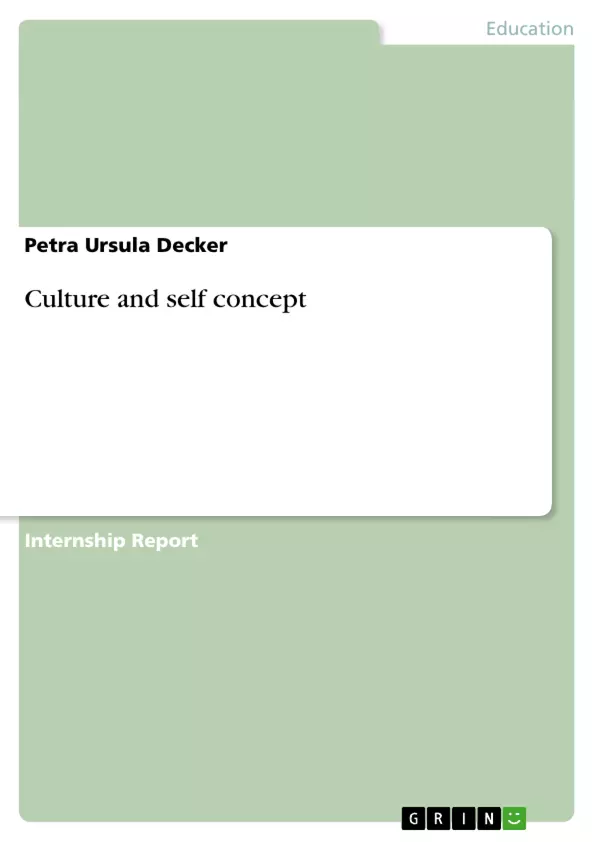My work is part of a cultural comparison study about the self and the self concept from young people at the age of 18 to 25 in Peru as well as in former East and West Germany. It is interesting to know the whole structure about the self concept where the single elements of knowledge refer to one another and not the single independent variables. To get an idea about this concept you need to work methodologically. We used qualitative structured interviews with basic questios like "How should the ideal person be" or "How do you describe responsibility."
Inhaltsverzeichnis (Table of Contents)
- Summary of activities and experiences
- Culture and self concept
- Method
Zielsetzung und Themenschwerpunkte (Objectives and Key Themes)
The main objective of this work is to analyze the self-concept of young adults in Peru, former East and West Germany through a cultural comparison study. The research aims to understand how the concept of self is shaped by different cultural contexts.
- Cultural influences on self-concept
- Developmental stages of self-concept
- The role of ethnotheory in shaping self-concept
- Universality and cultural specificity in self-concept
- The relationship between self-concept and cultural values
Zusammenfassung der Kapitel (Chapter Summaries)
- Summary of activities and experiences: This section provides an overview of the research project, including its focus on cultural comparisons of self-concept among young adults in Peru and Germany. It outlines the methods used, such as qualitative structured interviews and the dilemma method.
- Culture and self concept: This chapter delves into the theoretical framework of the study, exploring the relationship between culture and self-concept. It discusses the concept of ethnotheory and its influence on the development of self-concept. The chapter also presents the five main levels of implicit anthropology, which are used to investigate individual's conceptions of human nature.
- Method: This section outlines the methodology employed in the research. It describes how interviews were categorized and analyzed, focusing on two specific questions: "How should the ideal person be?" and "How do you define responsibility?"
Schlüsselwörter (Keywords)
This research focuses on self-concept, cultural comparison, ethnotheory, implicit anthropology, developmental stages, cultural values, individualistic and collectivistic cultures, qualitative interviews, dilemma method, Peru, Germany.
Frequently Asked Questions
How does culture influence the self-concept of young adults?
Cultural values, such as individualism and collectivism, shape how individuals perceive themselves, their responsibilities, and their ideal personhood.
What countries were compared in this study?
The research compared young adults aged 18 to 25 from Peru and from both former East and West Germany.
What is "Implicit Anthropology" in this context?
It refers to the underlying, often unconscious conceptions of human nature that people hold, analyzed through five main levels in this research.
Which methods were used to gather data?
The study utilized qualitative structured interviews, including basic questions about the "ideal person" and the definition of "responsibility," as well as the dilemma method.
What is an ethnotheory?
Ethnotheories are cultural belief systems regarding child-rearing and human development that influence the formation of an individual's self-concept.
- Quote paper
- Petra Ursula Decker (Author), 1999, Culture and self concept, Munich, GRIN Verlag, https://www.grin.com/document/29661



